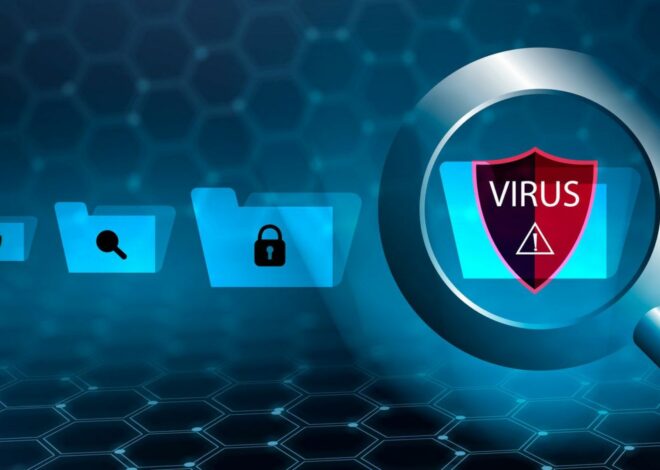Common Myths and Misconceptions About Antivirus Software
In the fast-paced digital landscape, where cyber threats are as ubiquitous as the air we breathe, antivirus software stands as the knight in shining armor, protecting our digital kingdoms. However, amidst the ubiquity of antivirus solutions, there exists a fog of myths and misconceptions that often cloud users’ understanding. In this blog post, we embark on a myth-busting journey to reveal the truth about antivirus software and shed light on the misinformation that shrouds it.

“My Operating System is Secure; I Don’t Need Antivirus!”
One of the most prevalent myths is that certain operating systems are impervious to malware, rendering antivirus software unnecessary. This misconception primarily surrounds macOS and Linux systems. While it’s true that these operating systems have robust security features, they are not invulnerable. Cybercriminals continuously evolve their strategies, creating malware that can breach even the most secure systems. Hence, antivirus software provides an essential layer of protection for all operating systems.
“Free Antivirus Is Just as Good as Paid Versions”
The belief that free antivirus software offers the same level of protection as paid versions is another common misconception. Free antivirus solutions do provide a basic level of security, but they often lack advanced features and comprehensive threat databases that paid versions offer. Premium versions usually include features like real-time protection, behavioral analysis, firewall, and timely updates, providing a superior defense against evolving cyber threats.
“Antivirus Guarantees 100% Protection Against Malware”
Antivirus software is a potent tool in the fight against malware, but it doesn’t offer foolproof protection. No antivirus can guarantee a 100% shield against all types of threats. Cybercriminals continuously devise new malware and evasion techniques, sometimes bypassing even the most sophisticated antivirus programs. Antivirus software significantly reduces the risk, but users should remain vigilant and practice safe browsing habits.
“Myths About Mac: ‘Mac Devices Are Immune to Viruses'”
A common myth revolves around the presumed invincibility of Mac devices against viruses and malware. While it’s true that Macs historically faced fewer threats than Windows PCs, this security advantage has eroded in recent years. Cybercriminals are increasingly targeting Mac users due to the rising popularity of Apple devices. Antivirus software for Macs is as essential as for any other platform, providing protection against evolving Mac-specific malware.
“Having Multiple Antivirus Programs Enhances Security”
Some users believe that having multiple antivirus programs concurrently installed will boost their device’s security. However, this is a misconception. Multiple antivirus programs can conflict with each other, causing system instability and decreased performance. Additionally, they might detect each other as threats, resulting in unnecessary alerts and confusion. It’s best to choose one reputable antivirus program that suits your needs and keeps it updated.
“Antivirus Slows Down My Computer”
Many users fear that installing antivirus software will significantly slow down their computer’s performance. While it’s true that some antivirus programs can have a minor impact on system speed, modern antivirus solutions are designed to minimize this effect. Advances in technology have allowed antivirus software to operate efficiently in the background, ensuring robust protection without noticeable system slowdowns.
“Antivirus Software Can Completely Clean an Infected System”
Antivirus software can detect and remove a wide range of malware from infected systems, but it’s not a magical panacea that can cleanse every infection. Sophisticated malware often hides deep within the system, making complete eradication challenging. In such cases, professional help might be necessary to thoroughly cleanse the system. Prevention through regular backups and vigilant browsing habits remains key to avoiding infections.
“Antivirus Software Only Protects Against Malware”
While the primary function of antivirus software is to protect against malware, modern antivirus solutions offer a much broader spectrum of protection. They include features like firewalls, email scanning, phishing protection, identity theft prevention, and more. Antivirus software is evolving into comprehensive security suites, safeguarding users against a plethora of online threats beyond traditional malware.
“I’m Cautious, So I Don’t Need Antivirus”
Some users, underestimating the evolving nature of cyber threats, believe that their cautious online behavior suffices for protection. While caution is essential, it’s not a foolproof strategy. Cyber threats are becoming increasingly sophisticated and can breach even the most vigilant user’s defenses. Antivirus software acts as an additional layer of protection, ensuring that even if a slip-up occurs, your digital realm remains fortified.



